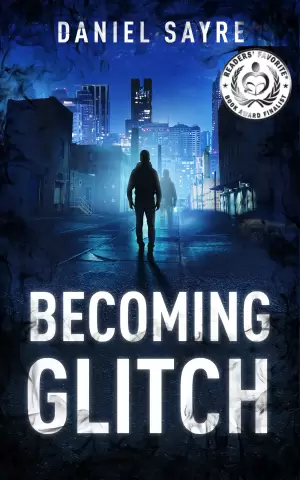We’re all busy. It’s almost a competition these days, talking about how much you have going on and how little sleep you get.
So, if you’re living life and working a job and raising a family, adding something else to the mix – like, say, writing a book – might seem impossible. And, sometimes, it’s true: there just aren’t enough hours in the day. But, for a lot of us, a lot of the time, we can find that little bit of extra energy and focus to devote to a creative project if we make it a priority to do so.
I’m incredibly lucky to have honed my writing skills as a newspaper reporter with a daily deadline. There is nothing better for building the muscles you need to write quickly (and, eventually, maybe even well) than the simple necessity created by the blank screen in front of you and the ticking clock over your shoulder. The thing you learn this way is that, like so much in life, the key to writing is to just do it. You just have to get words on the page. They don’t have to be perfect. They don’t even have to be good. But they have to be there. You have to have a place to start. As a reporter, I’d start with my notes. If I couldn’t think of anything better to write, I’d begin by just transcribing the handwritten scribbles from my spiral-bound reporter’s notebook, typing them out and reading them back to myself as they appeared on the screen. Inevitably, a phrase or a quote or a really interesting fact would reveal itself and I would know I had something. Anchoring my hopes on that single scrap, I’d bite my lip and start really writing.
Today, as a novelist, I try to apply that same method to writing fiction. Almost everything I do begins with longhand notes – ideas, observations, snippets of overheard conversations – that I jot down in a little composition book that’s always in my bag. That way, when I find the time to actually sit down at my computer to really work on my manuscript, I always have a place to start. I begin by just typing my notes. Sometimes, the best I can do with them is to find “homes” for them within my very detailed outline. (I use Storymill software for maintaining a database of scenes, keeping a plot timeline and tracking details of my characters’ lives. There are lots of tools out there to buy or make that can help you do the same.) Other times, I can take some little moment and begin to craft it into an entire scene. Either way, when I do sit down at my computer for writing time, I still hold myself to a deadline: I will work on this until 5:30.
For me, planning and measuring out my writing time is essential to being productive. I keep a ridiculously detailed calendar that includes my work commitments, my kids’ activities, personal appointments, social plans, my husband’s travel schedule, dedicated blocks of time for running and exercise and even the two TV shows that I consider to be required viewing (The Good Wife and Parenthood). When I have a realistic and comprehensive view of how my time will be used in a given week, I then identify a couple of blocks of time that I can take for writing. These precious hours need to come when the rest of my family is occupied and when I’m not completely exhausted. Some weeks, I can only manage to find 90 minutes like this. That’s not a lot, but it’s not zero, either.
As I said, I consider myself incredibly fortunate to have had a chance, in my journalism career, to develop the kind of discipline it takes to write when you have very limited time. For those who haven’t had that chance, I think there are a few ways to cultivate the same mindset and skills.
First – and, in my experience, this was the very hardest thing – you have to give yourself permission to do this. Writing a novel and having it published was a lifelong goal for me; truly, what I’d dreamed of doing since I was a little girl. But, somehow, on a daily basis, other things always seemed more important. I was either working a job (first as a journalist and then as a media consultant) or building my business (the legal PR firm I now run) or taking care of my kids or spending time with my husband or managing our house or running or cooking or cleaning up …. Well, you get the picture. The idea of walking away from any of that in order to work on a creative hobby like writing felt just utterly selfish to me. I have 3 kids less than 3 years apart in age. There were several brutally sleep deprived early years when I simply could not fathom having “alone time” or “me time” that did not involve also getting the groceries. Still, at a certain point, something clicked with me and I recognized that I was really losing myself in all those responsibilities. I needed to write creatively again to find myself. And, ultimately, I believe that my family is better off for having me happy, fulfilled and (not least) a role model for following your dreams and ambitions.
Second, it’s important to be realistic and clear about your goals and priorities. Sit down and honestly assess the amount of time you can devote to writing. For most of us, there is some amount of “lost” time we can reclaim for things that are important to us: the time we spend zoned out on the Internet or in front of the TV or flipping through magazines. It’s important, though, to recognize that you do need some of this down time, just to give your brain a break. For most of us, a plan to write for three hours each night after the kids go to be just isn’t going to work. If writing is important to you, try to start by finding 1 or 2 hours a week to devote to it. Maybe it will be your lunch break one day a week or maybe you’ll declare one night a week as “pizza night” and use the recovered cooking time for your project instead. Or maybe you’ll escape to a coffeehouse on Sunday afternoon. The point is: find some time and start there.
Third and finally, finding some kind of external accountability for being productive in your writing is key. Whether you sign up for a course, join a writing group with weekly meetings, or try something totally off the wall, like NaNoWriMo, having other people invested in your work, and waiting to see what you produce, is a tremendous motivator. If these options feel too social, you might also find an online forum or a personal writing coach, with whom you can agree on a schedule to deliver a certain number of words (of any quality) or a certain amount of time to devote to your project.


















